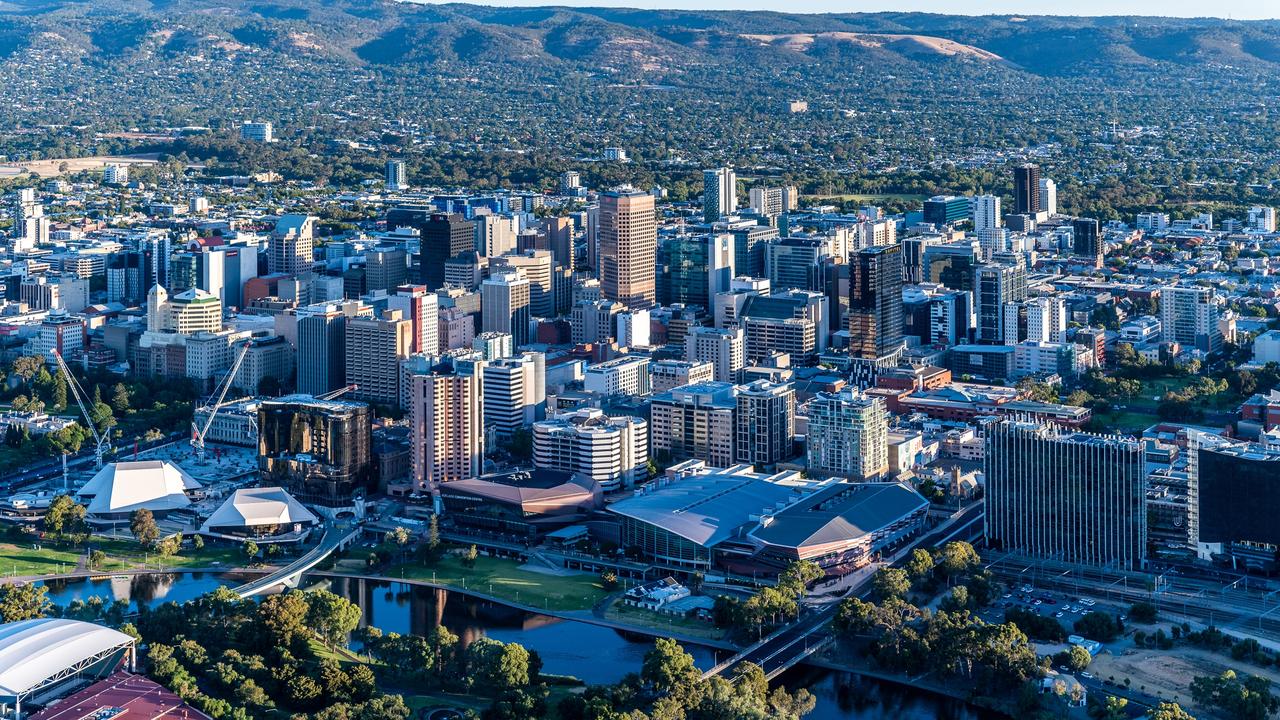Bruce Djite: No caps on work from home days would make Adelaide ‘an unattractive and uncompetitive city’
Unions are celebrating an agreement which removes government employers’ rights to cap workers’ days out of the office – but is it in the common interest?
Is the recent move by the Commonwealth to permit its employees an uncapped right to work from home in the common interest?
The agreement between The Community and Public Sector Union and the Australian Public Service Commission means up to 10,000 Commonwealth employees in never have to go to the office again.
If the South Australian government conceded to something similar this would mean 100,000 state employees would also never have to go to the office again.
This would be the death knell for Adelaide’s CBD.

That is why this week the Property Council called on the state government to carefully consider the implications for state government departments which may be considering following the precedent set by this agreement.
The magnitude of potentially taking such an extreme policy needs to be visualised to be fully appreciated.
Imagine the MCG – which holds 100,000 people at capacity – empty on AFL Grand Final day.
Alternatively, imagine two at-capacity weekend matches at the Oval – which holds just over 50,000 people – but both fixtures played in a completely empty stadium because everyone has decided to watch the game from home.
It is difficult to fathom double that number of people not showing up to the office daily.
Pass the remotely working control – this show is bizarre.
Empty by that amount of people and we are talking about embedding severe consequences in the fabric of our economy and city. This would be the equivalent of choosing to go back to early 2020, at the start of the pandemic, only without the health consequences.
Any state government with the long-term economic interest of the state in mind would not seriously consider endorsing a similar move here.
Given the high proportion of government employees in Adelaide, such a policy would shatter small businesses and cause an unnecessary increase in unemployment, disincentivise investment and weaken payroll tax revenue the State Government is reliant on.
To date the state government through its actions has shown that it is prepared for its legacy to be one where it elevates the CBD, investment attractiveness and cultural vibrancy by securing events such as the AFL Gather Round which over four days was estimated to have injected $85 million into the state’s economy.

Currently, there is no indication that the Malinauskas government is seriously considering adopting this policy. In fact it has been encouraging public and private sector workers to return to CBD offices. It would be hard to imagine the same government not categorically ruling out a policy that would permanently undermine this potential legacy, and caving to pressure from some quarters who believe uncapped WFH conditions are required to be an employer of choice in the current tight labour market conditions.
While there are undoubtedly benefits to allowing a degree of remote and flexible work, it is essential to critically examine the consequence of companies and governments permitting uncapped working from home arrangements for their employees.
Allowing uncapped working from home for state government workers would make an unattractive and uncompetitive city. It would be no city at all but rather a ghost town. Who would invest here?
Without a bustling office environment, small businesses – the lifeblood of our economy – would lose the overflow benefits that come about when networking and collaboration opportunities arise in shared workspaces, like office accommodation.

Economic arguments aside, the office environment plays a crucial role in fostering a company’s culture and sense of belonging among employees. Remote work, if unchecked, erodes this culture and weaken the bonds between colleagues. A weakened company culture can have detrimental effects on productivity, ultimately affecting business performance and economic growth.
The latest figures from the ANZ Property Council Confidence Index Survey showed that despite price growth expectations being better than the rest of the country, in contrast to other asset classes, office capital growth rate expectations remain in negative territory in South Australia with the persistence of the working-from-home trend.
If valuations are down because the demand for office space is lowered, this hinders landlord capacity to access the funds required to invest in upgrading and improving amenity – something local and state governments want, and absolutely needs given we have the highest percentage of C and D grade buildings in the country.
Modern economies are structured around the notion of frequent social, economic and cultural transactions occurring between high-density clusters of people in locations called cities.
Can Adelaide rightly be called a city if there are no people in it?
If South Australia uncaps working-from-home, it will kneecap the economy.
Bruce Djite is SA executive director of the Property Council of Australia.





